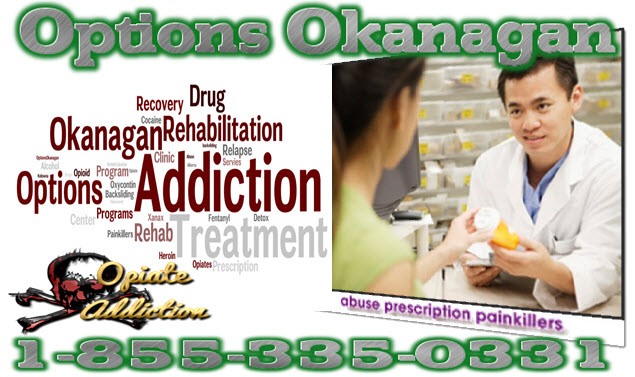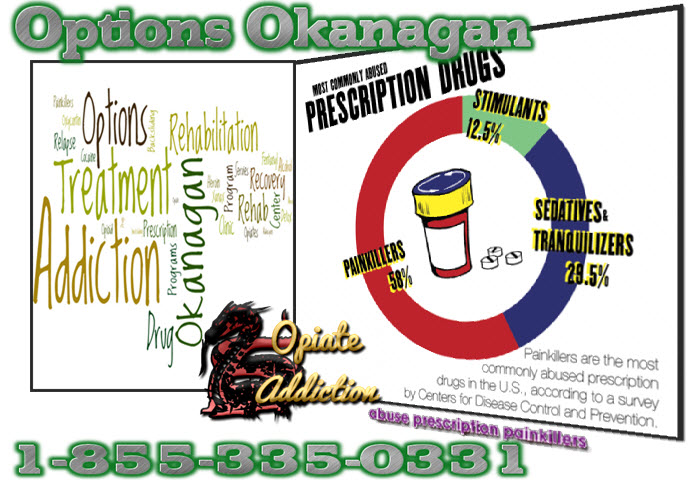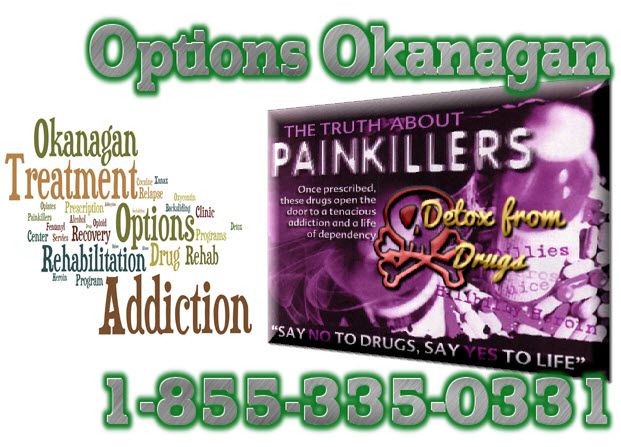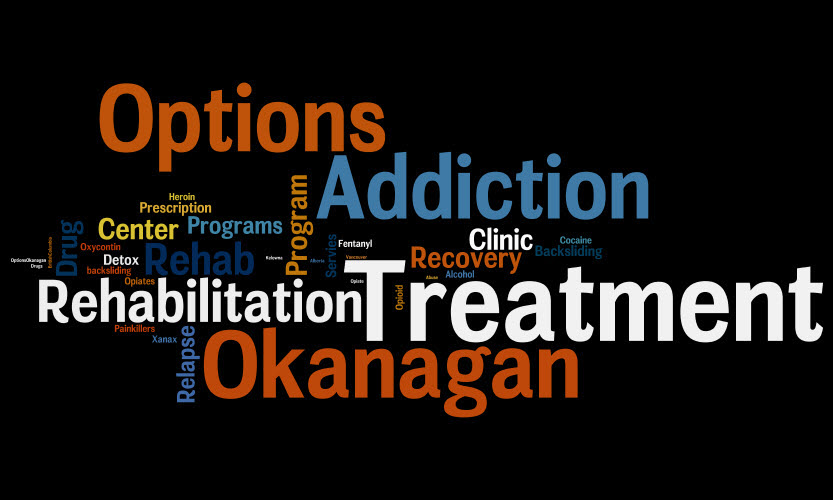Approaches to effective drug treatment and addiction in Calgary, Edmonton, Red Deer and other parts of Alberta by Options Okanagan Treatment Center in Kelowna, British Columbia treating drug addiction and recovery.
Most drug treatments start with detoxification, and how they are followed up makes all the difference. One common way is to follow detoxification with medication and behavioral therapy. This is also followed with treatment and relapse prevention. Preventing the relapse is the most important aspect, so it’s important to ease the withdrawal symptoms. If relapse occurs, and may be necessary to go back to prior treatment components. After this, things become highly personalized, as the patient needs to have all of their needs addressed, both in their medical and mental health lives. Customized treatment that focuses on community, family, and self-help can either make or break a person’s success when it comes to breaking free from drugs.

Alberta Medications
Many medications may be used to help with different angles in the treatment process.
Withdrawal: During detoxification, certain medications allow the patient to avoid certain withdrawal symptoms. Keep in mind, however, that getting through withdrawal is only the beginning of kicking a drug habit. Patients who managed to get through withdrawal but have no further treatment often end up relapsing just as often as people who never got treatments begin with.
Treatment: The medications used during treatment are meant to help reestablish normal brain function and to ideally diminish the cravings and thus prevent relapse. Today, there are medications to help treat alcohol, tobacco (nicotine,) and opioid (morphine, heroin) addictions. Scientists are currently developing treatment options for people who are addicted to stimulants like cocaine and methamphetamine, cannabis or marijuana, and others. Yet it’s important to remember that many people with hard drug addictions are what we call polydrug users. This means they are addicted to more than one drug, and will need to be treated for every substance they abuse.

Opioids: Addictions to opioids can often be treated with medications like buprenorphine, methadone, and even naltrexone in certain cases. Buprenorphine and methadone go to the brain to suppress withdrawal symptoms and relieve the drug cravings. Naltrexone, on the other hand, attempts to block the effects of heroin or other common opioids right at the receptor sites. Therefore, it should only be used in patients that have been detoxified. Naltrexone is not as commonly used as other medications because of compliance issues. The point of these drugs is to help the patient not only engage from seeking drugs and other criminal behavior, but to also make them more receptive to behavioral treatments.
Tobacco: There are many over-the-counter and prescription ways to treat a nicotine addiction. Patches, gum, sprays, and lozenges are all popular. The two prescription medications include varenicline and bupoprion. Both are approved by the FDA. While both work differently, they are meant to help prevent the relapse in the brain when you’re trying to quit. It’s highly recommended that these medical treatments be done in conjunction with behavioral therapy. This may include group or individual focused therapies. Telephone quit lines are also available.

Alcohol: For medications that treat alcohol dependence, look at naltrexone, disulfirum, and acamprosate. A fourth variety, topiramate, is currently in clinical trials but showing promise. Naltrexone works by blocking the opioid receptors that reward your drinking and make you crave alcohol. It works for many but not all patients and is quite good at reducing relapses. Acamprosate helps reduce the symptoms of protracted withdrawal. This includes anxiety, insomnia, dysphoria, and restlessness. Those who have a severe dependence on alcohol may find this more effective. Disulfirum interferes the degradation of alcohol, which means there is an accumulation of acetyldehyde. This basically punishes someone who drinks alcohol by making them flush, become nauseous, or suffer from palpitations. Compliance is sometimes a problem, but motivated patients usually find success.
Options Okanagan Drug Treatment Centers in Kelowna, Salmon Arm and Vancouver, British Columbia – Men and Women are recovering and healing from Alcohol and Drug Abuse at our treatment center here in the Okanagan right now.

Our unique and distinctive Alcohol treatment program allows men and women to come in from Calgary as well as Edmonton as we offer airport pickup.
Numerous clients come to us from Calgary and Edmonton and other locations in Alberta and even other provinces for Opiate addiction treatment, meth drug treatment, many other drug and alcohol addictions for rehabilitation because of the uniqueness of our treatment center.
Our Treatment Location:
Options Okanagan Drug Treatment Center
551 Sherrydale Crescent, Kelowna, British Columbia, V1V 2E6
Toll Free Phone Number : 1-855-335-0331
